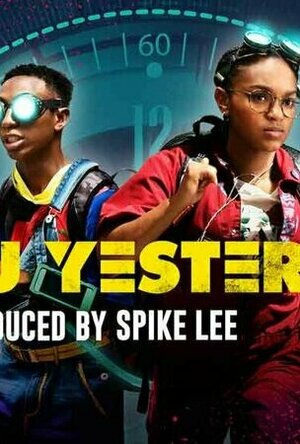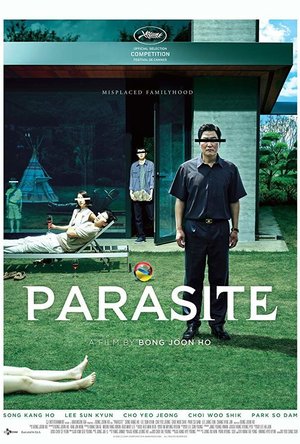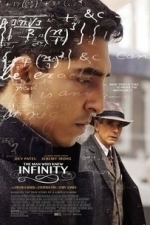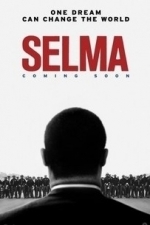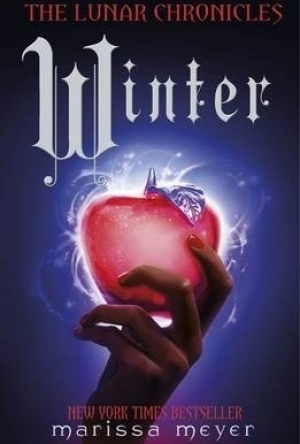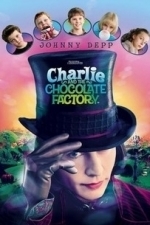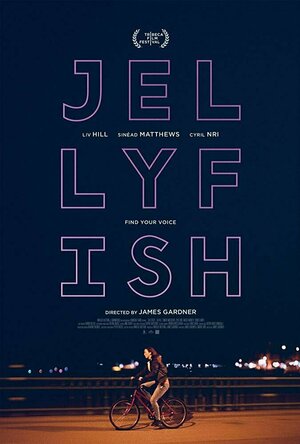Search
Hazel (1853 KP) rated The Sun is Also a Star in Books
Dec 7, 2018
<i>This eBook was provided by the publisher via NetGalley in exchange for an honest review </i>
Following the success of her debut novel, Nicola Yoon’s second book, <i>The Sun is also a Star</i>, has been highly anticipated amongst young adult readers. In twelve hours time, senior student, Natasha will be deported to Jamaica. Her family are undocumented immigrants and can no longer remain living in the United States. Despite her best efforts, Natasha has not succeeded in getting the courts to change their mind, and now there is barely any time left. Today is the last day before things change forever; little does she know how significant this day will be.
Only half the story is told from Natasha’s point of view. The remainder is narrated by Daniel, a Korean American whose parents’ high expectations have resulted in an interview with the prestigious university, Yale. With several hours to go, Daniel is wandering around New York when a chain of events leads him into saving Natasha’s life – literally. Instantly infatuated with Natasha, Daniel attempts to convince her that their meeting is fate. Yet, Natasha’s factual, scientific brain refuses to concede, leaving Daniel with less than 12 hours to convince her otherwise.
At heart, <i>The Sun is also a Star</i>, is a romance novel, however it contains so many other themes. Both characters are from immigrant families whose histories greatly impact on their current and future lives. Natasha’s father’s impractical dreams have lead to this disastrous consequence, whereas Daniel’s parents are adamant that he become a doctor and avoid the poverty they grew up with. Naturally, the teens are unhappy with the way their futures are being plotted; Natasha more so, however the poetry-loving Daniel wishes he could become who he wants to be rather than who he is told to be.
Although being deep thinkers, Natasha and Daniel are total opposites, yet something is pulling them together. Whether it is love or the simply the way the universe works, the character’s break all ethnic stereotypes as their relationship races from strangers to something much more intimate.
Nicola Yoon has experienced first hand growing up in both Jamaica and New York, therefore readers can assume that Natasha’s experiences are largely based on the author’s own – presumably not including the deportation. Society generally tends to assume all people from Jamaica or Korea fit into a certain box – liking certain music, academic success, wearing particular fashion – yet Daniel and Natasha prove otherwise.
Despite the narrative being condensed into one day in the life of these two characters, there is so much going on. Firstly there is the rushing around New York trying to get to appointments on time and so forth, however the content in between these scenes will keep the reader thinking for hours. Daniel’s poetical theories about love and Natasha’s scientific explanation about the universe will make you question your own philosophy about the world. Whether either or neither of them are correct, what they do prove is the difference a single day can make.
<i>The Sun is also a Star</i> has a similar vibe to novels by Rainbow Rowell, David Levithan and John Green – some of the top Young Adult authors of the current era. It is a story that will pull at your heartstrings while your logical brain refuses to see chance of a happy ending. With no way of guessing what the universe has in store, this book will keep you thoroughly engaged from beginning to end.
Following the success of her debut novel, Nicola Yoon’s second book, <i>The Sun is also a Star</i>, has been highly anticipated amongst young adult readers. In twelve hours time, senior student, Natasha will be deported to Jamaica. Her family are undocumented immigrants and can no longer remain living in the United States. Despite her best efforts, Natasha has not succeeded in getting the courts to change their mind, and now there is barely any time left. Today is the last day before things change forever; little does she know how significant this day will be.
Only half the story is told from Natasha’s point of view. The remainder is narrated by Daniel, a Korean American whose parents’ high expectations have resulted in an interview with the prestigious university, Yale. With several hours to go, Daniel is wandering around New York when a chain of events leads him into saving Natasha’s life – literally. Instantly infatuated with Natasha, Daniel attempts to convince her that their meeting is fate. Yet, Natasha’s factual, scientific brain refuses to concede, leaving Daniel with less than 12 hours to convince her otherwise.
At heart, <i>The Sun is also a Star</i>, is a romance novel, however it contains so many other themes. Both characters are from immigrant families whose histories greatly impact on their current and future lives. Natasha’s father’s impractical dreams have lead to this disastrous consequence, whereas Daniel’s parents are adamant that he become a doctor and avoid the poverty they grew up with. Naturally, the teens are unhappy with the way their futures are being plotted; Natasha more so, however the poetry-loving Daniel wishes he could become who he wants to be rather than who he is told to be.
Although being deep thinkers, Natasha and Daniel are total opposites, yet something is pulling them together. Whether it is love or the simply the way the universe works, the character’s break all ethnic stereotypes as their relationship races from strangers to something much more intimate.
Nicola Yoon has experienced first hand growing up in both Jamaica and New York, therefore readers can assume that Natasha’s experiences are largely based on the author’s own – presumably not including the deportation. Society generally tends to assume all people from Jamaica or Korea fit into a certain box – liking certain music, academic success, wearing particular fashion – yet Daniel and Natasha prove otherwise.
Despite the narrative being condensed into one day in the life of these two characters, there is so much going on. Firstly there is the rushing around New York trying to get to appointments on time and so forth, however the content in between these scenes will keep the reader thinking for hours. Daniel’s poetical theories about love and Natasha’s scientific explanation about the universe will make you question your own philosophy about the world. Whether either or neither of them are correct, what they do prove is the difference a single day can make.
<i>The Sun is also a Star</i> has a similar vibe to novels by Rainbow Rowell, David Levithan and John Green – some of the top Young Adult authors of the current era. It is a story that will pull at your heartstrings while your logical brain refuses to see chance of a happy ending. With no way of guessing what the universe has in store, this book will keep you thoroughly engaged from beginning to end.
Darren (1599 KP) rated See You Yesterday (2019) in Movies
Dec 27, 2019
Verdict: Messy Time Travel Film
Story: See You Yesterday starts as we meet the two teenagers Claudette ‘CJ’ Walker (Duncan-Smith) and Sebastian Thomas (Crichlow) who have been working on their science project to make time travel possible. After they prove they can go back just one day, CJ the brains behind the project, does something reckless, which changes the pass, while dealing with an ex-boyfriend.
The consequences of her actions create a domino effect which sees her brother Calvin (Astro) killed in a police shooting, wanting to make a different CJ works with Sebastian to try and create the ability to go further back, which only ends up creating more problems, the more she tries to fix.
Thoughts on See You Yesterday
Characters – Claudette ‘CJ’ Walker is the brains behind the time travel machine, she however has started to become difficult to be around, causing unnecessary trouble in an already combustible neighbourhood. When the pair get the machine to work, it is her mistake which causes the effects the pair must go through. She is always so desperate to fix the mistakes, she doesn’t even consider the consequences. Sebastian is the best friend that has always helped along the way, he is the one that will ask the questions about the consequences, seeing how reckless CJ has become. Calvin is the big brother of CJ’s, he will always make sure she is safe, whenever somebody in the neighbourhood causes her trouble.
Performances – While the two leading stars Eden Duncan-Smith and Dante Crichlow don’t do anything wrong through the film, they have annoying character traits to bring to life, which doesn’t help what they have to work with.
Story – The story here follows two high school friends that are trying to prove time travel is possible and soon learn the consequences of trying to change the past. This story does have an important reason for trying to create the time travel, we are placed into a Brooklyn neighbourhood that has been dealing with police shooting, overly aggressive gang mentality and will have signs of poverty. Outside of this side of the story, we are dealing with really bad time travel decisions, even though the characters seem clear of what not to do. We won’t go into the non-ending either, which leaves us with nothing after what has happened through the film, this does just feel like an unfinished script, that really wants deal with topical issues through the film.
Action/Sci-Fi – The action in the film does come from the panic involved once the first incident happens, it is more neighbourhood action, rather anything else, while the time travel might dive into basic science behind time travel, which does work well, it is the behaviour from people that believe they understand it that let everything down.
Settings – The film is set in Brooklyn which shows the environment the two friends are around, which brings the combustible elements.
Scene of the Movie – See You Yesterday.
That Moment That Annoyed Me – Most of CJ’s decisions.
Final Thoughts – Messy time travel film, which does deal with big topical issues the best it can, sadly, get caught in the middle of both worlds.
Overall: Missed the point.
Story: See You Yesterday starts as we meet the two teenagers Claudette ‘CJ’ Walker (Duncan-Smith) and Sebastian Thomas (Crichlow) who have been working on their science project to make time travel possible. After they prove they can go back just one day, CJ the brains behind the project, does something reckless, which changes the pass, while dealing with an ex-boyfriend.
The consequences of her actions create a domino effect which sees her brother Calvin (Astro) killed in a police shooting, wanting to make a different CJ works with Sebastian to try and create the ability to go further back, which only ends up creating more problems, the more she tries to fix.
Thoughts on See You Yesterday
Characters – Claudette ‘CJ’ Walker is the brains behind the time travel machine, she however has started to become difficult to be around, causing unnecessary trouble in an already combustible neighbourhood. When the pair get the machine to work, it is her mistake which causes the effects the pair must go through. She is always so desperate to fix the mistakes, she doesn’t even consider the consequences. Sebastian is the best friend that has always helped along the way, he is the one that will ask the questions about the consequences, seeing how reckless CJ has become. Calvin is the big brother of CJ’s, he will always make sure she is safe, whenever somebody in the neighbourhood causes her trouble.
Performances – While the two leading stars Eden Duncan-Smith and Dante Crichlow don’t do anything wrong through the film, they have annoying character traits to bring to life, which doesn’t help what they have to work with.
Story – The story here follows two high school friends that are trying to prove time travel is possible and soon learn the consequences of trying to change the past. This story does have an important reason for trying to create the time travel, we are placed into a Brooklyn neighbourhood that has been dealing with police shooting, overly aggressive gang mentality and will have signs of poverty. Outside of this side of the story, we are dealing with really bad time travel decisions, even though the characters seem clear of what not to do. We won’t go into the non-ending either, which leaves us with nothing after what has happened through the film, this does just feel like an unfinished script, that really wants deal with topical issues through the film.
Action/Sci-Fi – The action in the film does come from the panic involved once the first incident happens, it is more neighbourhood action, rather anything else, while the time travel might dive into basic science behind time travel, which does work well, it is the behaviour from people that believe they understand it that let everything down.
Settings – The film is set in Brooklyn which shows the environment the two friends are around, which brings the combustible elements.
Scene of the Movie – See You Yesterday.
That Moment That Annoyed Me – Most of CJ’s decisions.
Final Thoughts – Messy time travel film, which does deal with big topical issues the best it can, sadly, get caught in the middle of both worlds.
Overall: Missed the point.
Bob Mann (459 KP) rated Parasite (2019) in Movies
Feb 9, 2020
It’s so metaphorical.
Everyone said “Go see Parasite”. Everyone said “The one rule about Parasite is that you don’t talk about Parasite”. So I went to see Parasite. So this is a review about Parasite without talking about Parasite.
Kim Ki-Woo (Woo-sik Choi) is a student living with his family in poverty in a sub-basement room, sponging off internet signals and scrounging a living, of sorts, by assembling pizza boxes. Opportunity presents itself when his best friend, the slightly older Min (Seo-joon Park), goes abroad to study. For Min is an English tutor to the up-market Park family’s school-age daughter Da-hye (Ji-so Jung). Not wanting his fellow ‘frat-boys’ to move in on future romance – he’s lined up Ki-Woo as his replacement.
Ki-woo knows he’s lucked in when he visits the swanky Park residence and manages to pull the wool over the eyes of Da-hye’s not too bright mother Yeon-kyo (Yeo-jeong Jo). But the influence of the family’s “lucky rock” doesn’t stop there. Ki-woo sees an opportunity to get jobs for his sister Kim (So-dam Park), his father Ki-taek (Kang-ho Song) and his mother Chung-sook (Hye-jin Jang). And gradually the poor Kim family start to encroach on the rich Park family’s lives.
You might think that’s the story. It’s not. Just when you think you know where the film is going – a gentle comic tale with farcical elements – the movie takes a sudden left turn into The Twilight Zone.
To say more, if you’ve not seen the film, would be cruelty beyond measure. It’s a truly astonishing script, by writer/director Bong Joon Ho, and my nomination for the Oscar for best original screenplay.
It’s the details that get to you. This will be a superb film to watch multiple times. There are fabulous details scattered throughout. You know how the more expensive the car the more “solid” the clunk is as you shut the door? Listen to the sound effect when the Park front door shuts! Look what happens to the “one of a kind” lucky rock!
As for one of my favourite films from last year – “The Farewell” – you very quickly get to accept and embrace the subtitles. YOU MUST NOT LET THIS PUT YOU OFF. This is a masterpiece of cinema, well-deserving of its multiple Oscar nominations and its Cannes Palme d’Or award. At 132 minutes, it’s not a short film, but seldom have two hours flown by faster. It’s totally gripping. At times hysterically funny; at times shocking. A class struggle movie of a calibre that Ken Loach would never have imagined!
Gripes? I had just one. An action near the end of the movie seems bizarrely out of character and was a “WTF” moment that I didn’t think the film needed. However, it did set up a wonderful story-telling finale that I will think about for many months.
It provoked that seldom found reaction in the cinema when the end-titles ran. A hubbub of chatter and appreciation.
It comes with a highly recommended from me.
For the full graphical review, check out https://bob-the-movie-man.com/2020/02/09/one-manns-movies-film-review-parasite-2020/.
Kim Ki-Woo (Woo-sik Choi) is a student living with his family in poverty in a sub-basement room, sponging off internet signals and scrounging a living, of sorts, by assembling pizza boxes. Opportunity presents itself when his best friend, the slightly older Min (Seo-joon Park), goes abroad to study. For Min is an English tutor to the up-market Park family’s school-age daughter Da-hye (Ji-so Jung). Not wanting his fellow ‘frat-boys’ to move in on future romance – he’s lined up Ki-Woo as his replacement.
Ki-woo knows he’s lucked in when he visits the swanky Park residence and manages to pull the wool over the eyes of Da-hye’s not too bright mother Yeon-kyo (Yeo-jeong Jo). But the influence of the family’s “lucky rock” doesn’t stop there. Ki-woo sees an opportunity to get jobs for his sister Kim (So-dam Park), his father Ki-taek (Kang-ho Song) and his mother Chung-sook (Hye-jin Jang). And gradually the poor Kim family start to encroach on the rich Park family’s lives.
You might think that’s the story. It’s not. Just when you think you know where the film is going – a gentle comic tale with farcical elements – the movie takes a sudden left turn into The Twilight Zone.
To say more, if you’ve not seen the film, would be cruelty beyond measure. It’s a truly astonishing script, by writer/director Bong Joon Ho, and my nomination for the Oscar for best original screenplay.
It’s the details that get to you. This will be a superb film to watch multiple times. There are fabulous details scattered throughout. You know how the more expensive the car the more “solid” the clunk is as you shut the door? Listen to the sound effect when the Park front door shuts! Look what happens to the “one of a kind” lucky rock!
As for one of my favourite films from last year – “The Farewell” – you very quickly get to accept and embrace the subtitles. YOU MUST NOT LET THIS PUT YOU OFF. This is a masterpiece of cinema, well-deserving of its multiple Oscar nominations and its Cannes Palme d’Or award. At 132 minutes, it’s not a short film, but seldom have two hours flown by faster. It’s totally gripping. At times hysterically funny; at times shocking. A class struggle movie of a calibre that Ken Loach would never have imagined!
Gripes? I had just one. An action near the end of the movie seems bizarrely out of character and was a “WTF” moment that I didn’t think the film needed. However, it did set up a wonderful story-telling finale that I will think about for many months.
It provoked that seldom found reaction in the cinema when the end-titles ran. A hubbub of chatter and appreciation.
It comes with a highly recommended from me.
For the full graphical review, check out https://bob-the-movie-man.com/2020/02/09/one-manns-movies-film-review-parasite-2020/.
Gareth von Kallenbach (980 KP) rated The Man Who Knew Infinity (2016) in Movies
Aug 6, 2019
In 1914, Srinivasa Ramanujan (Dev Patel) traveled from his poverty-stricken existence in Madras, India to Trinity College, Cambridge in the hope that he would have his theories published and be recognized for the mathematical genius he was. While there, despite facing racism, hostility and severe illness, he formed an important relationship with G.H. Hardy (Jeremy Irons) that would lead to breakthroughs in mathematics that are still relevant today.
It would be easy to prattle on about the tremendous talent onscreen in The Man Who Knew Infinity and with a supporting cast that features some of Britain’s best; we get exactly what we’d expect from the likes of Jeremy Irons, Toby Jones and Kevin McNally. All at the top of their game, they serve the story well with nuanced and well-rounded performances, and I’m certainly not going to take anything away from the exceptional jobs they’ve all done here. All the praise this film deserves however, needs to be directed at Dev Patel. In his role as Ramanujan, he’s completely stepped out of the shadow of his big-screen debut in Slumdog Millionaire and has proved his worth as a leading man capable of carrying the weight of an entire feature. Distancing himself also from the lovable, bumbling hotel owner in The Best Exotic Marigold movies, with Ramanujan he is allowed the room to display an incredible range, from quiet intensity to outspoken, unbridled passion and determination. Kudos also to the writers for not going The Big Short route (e.g. talking down to the uninitiated with ridiculous cutaways), but by using simple logic and examples to help convey complex information relevant to the plot.
For the performances alone, this is a solid entry in the biopic genre, but structurally speaking, it’s the editing that lets the film down. This very easily could have emerged as the next A Beautiful Mind, but between a bloated first act, a middling and wandering second act and a truncated final third, The Man Who Knew Infinity falls just short of greatness. Not only is no attention paid to Ramanujan’s achievements as a child, but too much time is given to details and subplots that are arguably inconsequential to the main narrative. This is especially evident in the inclusion of Bertrand Russell (who lived such a rich and fascinating life himself, it would take several films to do that story justice) and his being here feels like just a hollow excuse to include a cameo from another figure of historical importance. The biggest disservice though comes with the ending where we are denied a much needed catharsis and are left to suffer through a slap-dash, halfhearted montage. A restructuring from a more seasoned hand would have undoubtedly led to stronger word-of-mouth and perhaps a wider release. I also wouldn’t be surprised to learn that this is a case of “too many cooks” as the film has a staggering 43 credited producers. I get that independent features can be forced to source their funding from many places, but you can’t tell me that with all those opinions flying about that some of the original intent didn’t get lost in the noise.
As an aside, what Stephen Fry is doing here is beyond me. He’s given two scenes with perhaps a half a dozen lines, leaving his incomparable persona entirely wasted on a completely throwaway character. It’s a pity he wasn’t given a meatier role as one of Ramanujan’s antagonists.
It would be easy to prattle on about the tremendous talent onscreen in The Man Who Knew Infinity and with a supporting cast that features some of Britain’s best; we get exactly what we’d expect from the likes of Jeremy Irons, Toby Jones and Kevin McNally. All at the top of their game, they serve the story well with nuanced and well-rounded performances, and I’m certainly not going to take anything away from the exceptional jobs they’ve all done here. All the praise this film deserves however, needs to be directed at Dev Patel. In his role as Ramanujan, he’s completely stepped out of the shadow of his big-screen debut in Slumdog Millionaire and has proved his worth as a leading man capable of carrying the weight of an entire feature. Distancing himself also from the lovable, bumbling hotel owner in The Best Exotic Marigold movies, with Ramanujan he is allowed the room to display an incredible range, from quiet intensity to outspoken, unbridled passion and determination. Kudos also to the writers for not going The Big Short route (e.g. talking down to the uninitiated with ridiculous cutaways), but by using simple logic and examples to help convey complex information relevant to the plot.
For the performances alone, this is a solid entry in the biopic genre, but structurally speaking, it’s the editing that lets the film down. This very easily could have emerged as the next A Beautiful Mind, but between a bloated first act, a middling and wandering second act and a truncated final third, The Man Who Knew Infinity falls just short of greatness. Not only is no attention paid to Ramanujan’s achievements as a child, but too much time is given to details and subplots that are arguably inconsequential to the main narrative. This is especially evident in the inclusion of Bertrand Russell (who lived such a rich and fascinating life himself, it would take several films to do that story justice) and his being here feels like just a hollow excuse to include a cameo from another figure of historical importance. The biggest disservice though comes with the ending where we are denied a much needed catharsis and are left to suffer through a slap-dash, halfhearted montage. A restructuring from a more seasoned hand would have undoubtedly led to stronger word-of-mouth and perhaps a wider release. I also wouldn’t be surprised to learn that this is a case of “too many cooks” as the film has a staggering 43 credited producers. I get that independent features can be forced to source their funding from many places, but you can’t tell me that with all those opinions flying about that some of the original intent didn’t get lost in the noise.
As an aside, what Stephen Fry is doing here is beyond me. He’s given two scenes with perhaps a half a dozen lines, leaving his incomparable persona entirely wasted on a completely throwaway character. It’s a pity he wasn’t given a meatier role as one of Ramanujan’s antagonists.
Gareth von Kallenbach (980 KP) rated Selma (2015) in Movies
Aug 6, 2019
Set in 1965, the film follows the voting rights marches from Selma to Montgomery. During the time Black citizens had the legal right to vote, but there were countless strategies put into place to stop them from actually being able to use those voting rights.
The film does a good job of providing back story of what was happening that brought on the marches. It portrays the horrific brutality of a time when blatant hatred ripped through the soul of the nation.
During the Selma march, peaceful protestors dressed in their Sunday’s best were beaten (even killed) by local police. However, even the most hard to watch moments of violence were toned down in comparison to actual footage from the Selma march.
The visceral moments of raw emotion and terrible violence will give the audience chills
Martin Luther King, Jr. (David Oyelowo) would of course be a hard pair of shoes to fill as an actor. But somehow Oyelowo pulls it off with a passion that shows in his eyes. Even the ways in which Oyelowo delivers his speeches were powerful and moving, much in the way of the real MLK, Jr.
An intriguing part of the film is the attention given to MLK, Jr.’s wife, Coretta Scott King (Carmen Ejogo). She is a less talked about figure in history, but perhaps this will now change. She is shown to be a very strong and intelligent woman, who serves as the backbone to the King family. Her role as wife, mother, and political supporter are highlighted.
The cast selection is top notch, making the film very realistic.
Tom Wilkinson, who plays Lyndon B. Johnson, practically resurrects the late President. His physical appearance and vocals make the actor almost indistinguishable from the real LBJ. .
However, there is some controversy over the historical accuracy of certain aspects of the film. This especially is true in regards to the portrayal of LBJ.
He is portrayed as under pressure to pass legislation in favor of Black voters, but he himself comes off as a racist whose heart is not in the cause. This portrayal paints a picture of a dishonest man, wielding political power to save face. It is contradicting to the more well-known image of the LBJ who actually cared very much about civil rights and poverty.
The Voting Rights Act of 1965 is thought to be his most important piece of legislative work. It was certainly not just a mere political reaction to protestors, though they surely had a strong impact on making it happen.
No one can deny the power of MLK, Jr.’s work. It is a profound historical example of the possibility for political transformation through the will of the people.
Another point of question is whether or not it was JFK or LBJ who originally ordered the FBI surveillance of MLK, Jr. and those associated with him.
A slightly troubling aspect of the film is that it lacks showing any tinge of gender inequality, which was a pervasive part of that era. Also, it was hinted at that MLK, Jr. had infidelity issues. Personally, I had some question as to whether or not this was true, or if it was even a useful piece of information to include. Perhaps it was included to show a more human side to MLK, Jr.
All of these questions aside, “Selma” is an amazing and moving piece of work.
A finely crafted cinematic reflection of a deep and painful scar on American history, I give “Selma” 4.5 out of 5 stars.
The film does a good job of providing back story of what was happening that brought on the marches. It portrays the horrific brutality of a time when blatant hatred ripped through the soul of the nation.
During the Selma march, peaceful protestors dressed in their Sunday’s best were beaten (even killed) by local police. However, even the most hard to watch moments of violence were toned down in comparison to actual footage from the Selma march.
The visceral moments of raw emotion and terrible violence will give the audience chills
Martin Luther King, Jr. (David Oyelowo) would of course be a hard pair of shoes to fill as an actor. But somehow Oyelowo pulls it off with a passion that shows in his eyes. Even the ways in which Oyelowo delivers his speeches were powerful and moving, much in the way of the real MLK, Jr.
An intriguing part of the film is the attention given to MLK, Jr.’s wife, Coretta Scott King (Carmen Ejogo). She is a less talked about figure in history, but perhaps this will now change. She is shown to be a very strong and intelligent woman, who serves as the backbone to the King family. Her role as wife, mother, and political supporter are highlighted.
The cast selection is top notch, making the film very realistic.
Tom Wilkinson, who plays Lyndon B. Johnson, practically resurrects the late President. His physical appearance and vocals make the actor almost indistinguishable from the real LBJ. .
However, there is some controversy over the historical accuracy of certain aspects of the film. This especially is true in regards to the portrayal of LBJ.
He is portrayed as under pressure to pass legislation in favor of Black voters, but he himself comes off as a racist whose heart is not in the cause. This portrayal paints a picture of a dishonest man, wielding political power to save face. It is contradicting to the more well-known image of the LBJ who actually cared very much about civil rights and poverty.
The Voting Rights Act of 1965 is thought to be his most important piece of legislative work. It was certainly not just a mere political reaction to protestors, though they surely had a strong impact on making it happen.
No one can deny the power of MLK, Jr.’s work. It is a profound historical example of the possibility for political transformation through the will of the people.
Another point of question is whether or not it was JFK or LBJ who originally ordered the FBI surveillance of MLK, Jr. and those associated with him.
A slightly troubling aspect of the film is that it lacks showing any tinge of gender inequality, which was a pervasive part of that era. Also, it was hinted at that MLK, Jr. had infidelity issues. Personally, I had some question as to whether or not this was true, or if it was even a useful piece of information to include. Perhaps it was included to show a more human side to MLK, Jr.
All of these questions aside, “Selma” is an amazing and moving piece of work.
A finely crafted cinematic reflection of a deep and painful scar on American history, I give “Selma” 4.5 out of 5 stars.

Red Sea Geothermal Provinces
D. Chandrasekharam, Aref Lashin, Nassir Al Arifi and Abdulaziz M Al-Bassam
Book
"Today, over two billion people in developing countries live without any electricity. They lead...
Update: Winter is the final book in the Lunar Chronicles series (although the story does continue in graphic novel form.) It is definitely one of my favourite conclusions, as the story wraps up well and is satisfying. The reader is not left with myriad plot holes and questions. As this is the fourth book in the series, you need to read the first three before delving into this one otherwise you will be confused and majorly spoiled.
The world building continued even in this book and most importantly we were shown Luna. Before that, they story took place predominantly on Earth in either the European Union, the African Republic or the Eastern Commonwealth. Once transported to Luna, readers were better able to get a sense of the disparity between the Lunar Aristocracy and the rest of Luna's citizens. The palace and surrounding area of Artemisia are ornately decorated whereas the outer sectors live in squalor. The stunning contrast is reminiscent of our own world and gives us a glimpse into the change that needs to happen.
Although this story was supposed to delve deeper into Winter and Jacin's relationship (which it did) I felt that it was overshadowed by the overarching plot. It was really nice to see the two interact and Jacin's character be developed more. He can seem cold and removed most of the time, but his demeanor completely changes when he is around Winter. He cares about her so much and will do anything to ensure her well-being. My one criticism about the book is that these two didn't receive the same relationship development and story time as the other three pairings.
You fall in love with these characters and follow them on their journey from mechanic to revolutionary, criminal to captain, or even unsure to (mildly) confident. They feel real and make their way into your heart. Iko was her usual precious self and I was so happy to see her woven more into the story. You don't want to see their stories end and thankfully they don't because the author is continuing the series in graphic novel form.
I would highly recommend this series to young adult/teen readers even if science fiction or fairytale retellings aren't usually your thing. They're so fantastically written that I think they appeal to broad range of readers and genres.
Original Review: I read the entire series over the course of four days, novellas included. That is how wonderful it is. As a fan of fairytale retellings, like Beastly by Alex Flinn, I had high hopes for this series and it did not disappoint. It gave the reader wonderful little homages to the classic fairytales while weaving the story through a world and characters all its own.
The world building in this novel was wonderfully done. As a reader, I could imagine the Lunar Palace as a place of opulence while those in the lower districts lived in poverty. There were a number of important characters and none of them were overlooked. You were able to learn about their personalities, histories, or relationships in a way that gave each depth. Each character had a unique personality and strength in the group. from fiery Scarlet to shy Cress and from flirty Thorn to tortured Wolf.
Sometimes conclusions to series just don't stand up to their legacy, but this was not one of those books. The author gave the reader everything they desired, climactic action scenes, wrapping up story threads while opening the door to future adventures, and leaving the reader satisfied. There's nothing worse than reading an amazing series that you become wholly invested in and then being utterly disappointed by the conclusion.
Recommended for anyone who liked YA, romance, fairytales, sci-fi, or really good books/series that you won't regret reading.
The world building continued even in this book and most importantly we were shown Luna. Before that, they story took place predominantly on Earth in either the European Union, the African Republic or the Eastern Commonwealth. Once transported to Luna, readers were better able to get a sense of the disparity between the Lunar Aristocracy and the rest of Luna's citizens. The palace and surrounding area of Artemisia are ornately decorated whereas the outer sectors live in squalor. The stunning contrast is reminiscent of our own world and gives us a glimpse into the change that needs to happen.
Although this story was supposed to delve deeper into Winter and Jacin's relationship (which it did) I felt that it was overshadowed by the overarching plot. It was really nice to see the two interact and Jacin's character be developed more. He can seem cold and removed most of the time, but his demeanor completely changes when he is around Winter. He cares about her so much and will do anything to ensure her well-being. My one criticism about the book is that these two didn't receive the same relationship development and story time as the other three pairings.
You fall in love with these characters and follow them on their journey from mechanic to revolutionary, criminal to captain, or even unsure to (mildly) confident. They feel real and make their way into your heart. Iko was her usual precious self and I was so happy to see her woven more into the story. You don't want to see their stories end and thankfully they don't because the author is continuing the series in graphic novel form.
I would highly recommend this series to young adult/teen readers even if science fiction or fairytale retellings aren't usually your thing. They're so fantastically written that I think they appeal to broad range of readers and genres.
Original Review: I read the entire series over the course of four days, novellas included. That is how wonderful it is. As a fan of fairytale retellings, like Beastly by Alex Flinn, I had high hopes for this series and it did not disappoint. It gave the reader wonderful little homages to the classic fairytales while weaving the story through a world and characters all its own.
The world building in this novel was wonderfully done. As a reader, I could imagine the Lunar Palace as a place of opulence while those in the lower districts lived in poverty. There were a number of important characters and none of them were overlooked. You were able to learn about their personalities, histories, or relationships in a way that gave each depth. Each character had a unique personality and strength in the group. from fiery Scarlet to shy Cress and from flirty Thorn to tortured Wolf.
Sometimes conclusions to series just don't stand up to their legacy, but this was not one of those books. The author gave the reader everything they desired, climactic action scenes, wrapping up story threads while opening the door to future adventures, and leaving the reader satisfied. There's nothing worse than reading an amazing series that you become wholly invested in and then being utterly disappointed by the conclusion.
Recommended for anyone who liked YA, romance, fairytales, sci-fi, or really good books/series that you won't regret reading.
Gareth von Kallenbach (980 KP) rated Charlie and the Chocolate Factory (2005) in Movies
Aug 14, 2019
It seems of late that every month Hollywood either releases or plans to release a remake of a classic film. This summer has spawned no less than 5 remakes of classic films or televisions shows and with box office receipts in decline, it would seem that the public is craving for something fresh.
Thankfully the Tim Burton remake of Charlie and the Chocolate Factory is not only a winner, but injects a much needed jolt of camp, charm, and wit into a late summer season that desperately needed it.
The film stars Johnny Depp as the mysterious candy maker Willie Wonka. Wonka has become a reclusive for two decades in order to protect his secret recipes from corporate spies and thieves.
As the film opens, a young boy named Charlie Bucket, (Freddie Highmore), returns home to his family shack, which he shares with his parents and four grandparents. As told via narration, that despite the poverty of his family, Charlie is a very lucky boy. Over their meager dinner of cabbage soup, Charlie’s grandfather (David Kelly) regales the family with tales of Willie Wonka and his exploits which he saw first hand while working in the factory decades earlier.
When Wonka resumed candy shipments after a hiatus the world was delighted, but many wondered who was making the candy as aside from shipping trucks, nobody was ever seen coming or going from the factory.
Such secrecy only added to the legend of Wonka as amazing candy creations continued to arrive in shops to the delight of customer’s world wide.
When it is announced that five golden tickets have been hidden inside candy bars world wide, and that the winners will be given a full day tour of the factory by Wonka himself, frenzy erupts across the globe as Wonka Bars are snatched up by a rabid public. Charlie dreams of getting one of the precious tickets, but his family’s meager income limits him to one bar a year on his birthday. Undaunted Charlie counts the days until his coming birthday, undaunted by the discovery of tickets around the globe.
When his efforts to get a ticket are daunted, and the fifth ticket is reported to be found, Charlie consoles himself by finding money in the street and purchases a Wonka Bar from the corner store. In the blink of an eye Charlie finds himself holding the last ticket when he learns that the last one reported found was a hoax.
Soon Charlie and his Grandfather are touring the magical factory complete with rivers of chocolate and edible candy forests in the company of the quirky Wonka and the fellow contest winners. What follows next is not going to be much of a surprise for those who have seen the 1971 version starring Gene Wilder or those who have read the novel by Roald Dahl, what is a surprise is how fresh and spirited this new version is. I was utterly charmed by the story and the effective pacing of the film.
Burton is a master of mixing visuals and fantasy and this time he not only excels, but he adds an effective touch of humanity to the fantasy which keeps the film from being lost in a see of color and effects.
Depp is brilliant as the eccentric Wonka as his mirth and camp, is underscored by equal amounts of fear and mistrust. The film is essentially a morality tale, but it never losses its focus or the charm by becoming preachy or drawn out. In a role that could easily have been mishandled, Depp soars and shows that he is one of the greatest actors of our generation.
Parents should note that there are a few moments in the film that may be a bit intense for the youngest of viewers, but that being said, the film is a true delight full of magic and fantasy that will delight young and old.
Thankfully the Tim Burton remake of Charlie and the Chocolate Factory is not only a winner, but injects a much needed jolt of camp, charm, and wit into a late summer season that desperately needed it.
The film stars Johnny Depp as the mysterious candy maker Willie Wonka. Wonka has become a reclusive for two decades in order to protect his secret recipes from corporate spies and thieves.
As the film opens, a young boy named Charlie Bucket, (Freddie Highmore), returns home to his family shack, which he shares with his parents and four grandparents. As told via narration, that despite the poverty of his family, Charlie is a very lucky boy. Over their meager dinner of cabbage soup, Charlie’s grandfather (David Kelly) regales the family with tales of Willie Wonka and his exploits which he saw first hand while working in the factory decades earlier.
When Wonka resumed candy shipments after a hiatus the world was delighted, but many wondered who was making the candy as aside from shipping trucks, nobody was ever seen coming or going from the factory.
Such secrecy only added to the legend of Wonka as amazing candy creations continued to arrive in shops to the delight of customer’s world wide.
When it is announced that five golden tickets have been hidden inside candy bars world wide, and that the winners will be given a full day tour of the factory by Wonka himself, frenzy erupts across the globe as Wonka Bars are snatched up by a rabid public. Charlie dreams of getting one of the precious tickets, but his family’s meager income limits him to one bar a year on his birthday. Undaunted Charlie counts the days until his coming birthday, undaunted by the discovery of tickets around the globe.
When his efforts to get a ticket are daunted, and the fifth ticket is reported to be found, Charlie consoles himself by finding money in the street and purchases a Wonka Bar from the corner store. In the blink of an eye Charlie finds himself holding the last ticket when he learns that the last one reported found was a hoax.
Soon Charlie and his Grandfather are touring the magical factory complete with rivers of chocolate and edible candy forests in the company of the quirky Wonka and the fellow contest winners. What follows next is not going to be much of a surprise for those who have seen the 1971 version starring Gene Wilder or those who have read the novel by Roald Dahl, what is a surprise is how fresh and spirited this new version is. I was utterly charmed by the story and the effective pacing of the film.
Burton is a master of mixing visuals and fantasy and this time he not only excels, but he adds an effective touch of humanity to the fantasy which keeps the film from being lost in a see of color and effects.
Depp is brilliant as the eccentric Wonka as his mirth and camp, is underscored by equal amounts of fear and mistrust. The film is essentially a morality tale, but it never losses its focus or the charm by becoming preachy or drawn out. In a role that could easily have been mishandled, Depp soars and shows that he is one of the greatest actors of our generation.
Parents should note that there are a few moments in the film that may be a bit intense for the youngest of viewers, but that being said, the film is a true delight full of magic and fantasy that will delight young and old.
Darren (1599 KP) rated Jellyfish (2018) in Movies
Dec 8, 2019
Verdict: Tragic & Heart Breaking
Story: Jellyfish starts as we meet school student Sarah Taylor (Hill) who is in struggling through her drama classes, taking care of her young siblings, while trying to work to give them any sort of extra money, her mother Karen (Matthews) is unemployed suffering from a mental illness.
When Sarah’s teacher Adam Hale (Nri) sees her talent for comedy, he pushes her into trying stand up comedy for a show, just when Sarah’s life starts to fall apart, with her losing her job and the family losing their benefits because of her mother not attending her meetings. Sarah is left needing to turn to darker sides of her life, to make sure her siblings stay with her and don’t get put into the foster system.
Thoughts on Jellyfish
Characters – Sarah is a 15-year-old girl that must look after her younger siblings, while her mother is struggling with her own mental illnesses, Sarah is trying to get through her GCSEs, working part time and being the only adult in her house, she is facing a future that isn’t going to happen unless things change quickly, everything is slowly piling up on her, with life situations she shouldn’t have put on her. Karen in the mother who has been suffering through depression making it difficult for her to even get out of the house to keep the benefits coming in. Adam Hale is the drama teacher that does see some potential in Sarah, he encourages her to find her talent for comedy, being supportive, where nobody else is. Vince is the boss that is trying to be strict, he gives Sarah chances unaware of her problems at home, even if he ends up being like any boss who hasn’t gotten more out of their own life.
Performances – Liv Hill gives us one of the strongest performances you will ever see, from every expression of pain she is going through, to just holding in the explosion of emotion that wants to come out of her. Sinead Matthews does make her character look like she is struggling with life. The rest of the supporting cast are strong, they all let Liv take the centre stage.
Story – The story here shows a 15-year-old that must take care of her younger siblings, manager school life and work life just to keep a roof over their heads. This is a story that will put a startling light on how some children will be living and just what they will need to do to get through each day, it shows the poverty line in England and how people will often not even give you the time of day to see what is wrong with somebody’s life, with only one person trying to offer support to Sarah. We see just how desperate she has become to make sure the family stays together even going against the law in her attempts. You will find yourself being incredibly moved by the struggles of Sarah and watching her slowly see her life unravel makes you want to help her.
Settings – The film is set in Margate a small coast town that doesn’t have the luxury life many people living there would have, it shows that small towns don’t offer big futures for people.
Scene of the Movie – The routine.
That Moment That Annoyed Me – Is drama the only class Sarah takes?
Final Thoughts – This is one of the most emotionally charged movies you will see, we have a truly brilliant performance that will leave you feeling heart broken by what Sarah goes through, a must watch.
Overall: Brilliant.
Story: Jellyfish starts as we meet school student Sarah Taylor (Hill) who is in struggling through her drama classes, taking care of her young siblings, while trying to work to give them any sort of extra money, her mother Karen (Matthews) is unemployed suffering from a mental illness.
When Sarah’s teacher Adam Hale (Nri) sees her talent for comedy, he pushes her into trying stand up comedy for a show, just when Sarah’s life starts to fall apart, with her losing her job and the family losing their benefits because of her mother not attending her meetings. Sarah is left needing to turn to darker sides of her life, to make sure her siblings stay with her and don’t get put into the foster system.
Thoughts on Jellyfish
Characters – Sarah is a 15-year-old girl that must look after her younger siblings, while her mother is struggling with her own mental illnesses, Sarah is trying to get through her GCSEs, working part time and being the only adult in her house, she is facing a future that isn’t going to happen unless things change quickly, everything is slowly piling up on her, with life situations she shouldn’t have put on her. Karen in the mother who has been suffering through depression making it difficult for her to even get out of the house to keep the benefits coming in. Adam Hale is the drama teacher that does see some potential in Sarah, he encourages her to find her talent for comedy, being supportive, where nobody else is. Vince is the boss that is trying to be strict, he gives Sarah chances unaware of her problems at home, even if he ends up being like any boss who hasn’t gotten more out of their own life.
Performances – Liv Hill gives us one of the strongest performances you will ever see, from every expression of pain she is going through, to just holding in the explosion of emotion that wants to come out of her. Sinead Matthews does make her character look like she is struggling with life. The rest of the supporting cast are strong, they all let Liv take the centre stage.
Story – The story here shows a 15-year-old that must take care of her younger siblings, manager school life and work life just to keep a roof over their heads. This is a story that will put a startling light on how some children will be living and just what they will need to do to get through each day, it shows the poverty line in England and how people will often not even give you the time of day to see what is wrong with somebody’s life, with only one person trying to offer support to Sarah. We see just how desperate she has become to make sure the family stays together even going against the law in her attempts. You will find yourself being incredibly moved by the struggles of Sarah and watching her slowly see her life unravel makes you want to help her.
Settings – The film is set in Margate a small coast town that doesn’t have the luxury life many people living there would have, it shows that small towns don’t offer big futures for people.
Scene of the Movie – The routine.
That Moment That Annoyed Me – Is drama the only class Sarah takes?
Final Thoughts – This is one of the most emotionally charged movies you will see, we have a truly brilliant performance that will leave you feeling heart broken by what Sarah goes through, a must watch.
Overall: Brilliant.
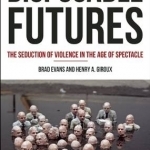
Disposable Futures: The Seduction of Violence in the Age of Spectacle
Brad Evans and Henry A. Giroux
Book
"This is a must-read book for anyone ready to transcend fear and imagine a new reality."--Tikkun...

